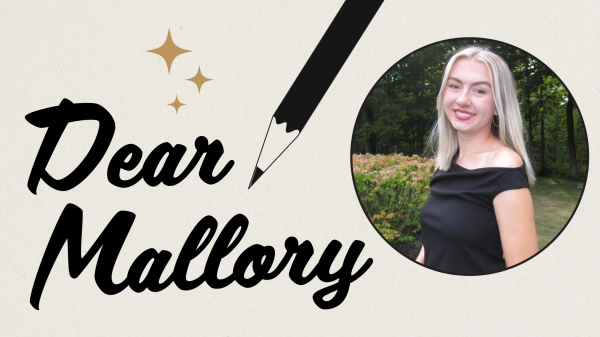Providing a light for those feeling trapped in the dark
There is a quote from J.K. Rowling’s “Harry Potter and the Prisoner of Azkaban” that reads “Happiness can be found, even in the darkest of times, if only one remembers to turn on the light.”
This, however, assumes that there is a light to be turned on in the first place.
For those suffering from depression, sometimes this “light” seems unattainable.
“A lot of times it involves feelings of conflict, loneliness, helplessness, affects sleep or appetite in either direction, appetite in either direction, and feeling down more days than not,” said Dr. David Schwartz, director of the Oakland University Counseling Center.
“When we have our healthy ups and downs, they don’t last for days. Everybody’s different [in their symptoms], though. People don’t fit neatly in boxes.”
Schwartz explained that now, during the second or third week of October, in the midst of the seasons changing and the stress and pressure of approaching midterms, students’ lives can prove especially challenging.
Because of the heightened stress levels, the OUCC sponsors mid-semester depression and anxiety screenings in the Oakland Center to aid any suffering students.
“We usually get 10 to 15 direct referrals [from the screenings], and a residual 30 or 40 people in the weeks after,” said Schwartz. “About once each year we catch someone who is very suicidal that day, and bring them to the office to intervene.”
These emergency cases, Schwartz said, have increased dramatically over the last five years, perhaps due, in part, to a lower stigma of mental illness but also higher stress levels.
“Emergency case” is often synonymous with a student feeling suicidal.
“A few years ago, after Corey Jackson [an OU student] died by suicide at OU, it woke a lot of people up to the fact that something needs to be done [about student suicide],” said Erica Wallace, program manager of Grizzlies Response: Awareness and Suicide Prevention (GRASP).
According to its website, the GRASP Program aims to “train faculty, staff, and students to effectively address mental health, build community relationships, and educate and provide resources to the OU community,” and is funded through the Garrett L. Smith Suicide Prevention Grant, awarded to Oakland in fall 2012 by the substance Abuse and Mental Health Services Administration.
“So far, we’ve trained around 1,200 individuals on suicide awareness through our evidence-based practices, and we offer these to any student orgs, faculty groups, departments or individuals interested,” said Wallace.
“We are also looking to focus on the mental illness component by introducing a mental health first aid class,” she said. “It’s internationally-recognized and really gives participants an overview of mental disorders and how to treat them.”
“Research is pretty clear that more than half of all college students experience severe depression sometime within their college careers to where it impacts their functioning,” said Schwartz. “That means over half of OU’s campus is experiencing this at some point.”
However, Schwartz had good news, as well.
“Studies show that close to 90 percent of all people who walk into therapy walk out feeling happier and more fulfilled, so the message there is that it works,” he said.
“We’re here, even if you just need to talk for fifteen minutes or about a friend,” Schwartz said. “We’re here for students.”
WHERE TO GO
Contact the OUCC at 248.370.3465 or visit it in the Graham Health Center. Find more information at www.oakland.edu/OUCC.
The SEHS Counseling Center, which offers
no-cost personal and career counseling, is also available for students at 250A Pawley Hall. Call at 248.370.2633.
TIPS FROM THE SEHS COUNSELING CENTER
Share your feelings and thoughts with someone you feel you can trust and who cares for you.
Take a bath or shower.
Take a walk.
Write for a few minutes each day on your thoughts and feelings, and consider sharing these writings.
Eat healthy. Practice meditation, breathe deeply and get adequate sleep.




